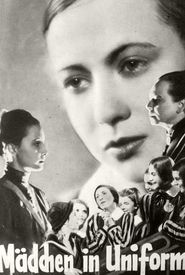Dorothea's childhood was spent primarily in Sweden, where she would later be influenced by the country's unique cultural heritage. Her early education took place in Dresden, and it was there that she began to develop her passion for the performing arts at the tender age of 12. Under the guidance of the renowned Maria Moissi, Dorothea honed her dance skills in Berlin, laying the foundation for a future career that would take her to the stages of Vienna.
It was in Vienna that Dorothea made her stage debut, impressing audiences with her performances in plays penned by the likes of Carl Zuckmayer and Ferenc Molnár. Her early success was followed by a foray into the world of silent cinema, where she caught the eye of director Franz Seitz in 1926. This chance encounter would set her on a path that would ultimately lead her to become a pioneering figure in the feminist film movement.
In 1931, Dorothea starred in Leontine Sagan's groundbreaking film Mädchen in Uniform, taking on the iconic role of Fraeulein von Bernburg. Her performance in this trailblazing film cemented her status as a leading lady of the silver screen, and she was soon signed by Paramount Pictures to star in Cradle Song (1933).
Despite her poignant performance in Cradle Song, the film failed to make a significant impact at the box office, and her subsequent Hollywood effort, Miss Fane's Baby Is Stolen (1934),based on the infamous Lindbergh kidnapping case, did even worse. The combination of this commercial failure and accusations of espionage forced Dorothea to return to Germany, where she would face significant challenges in her career due to her outspoken criticism of the Nazi regime.
Back in Germany, Dorothea's career was marked by a series of relatively minor film roles, and it was not until after the war that she began to rebuild her career. In the years that followed, she devoted most of her time to the theatre, making sporadic appearances on screen. Between 1961 and 1967, Dorothea taught acting at her own academy in Berlin, passing on her knowledge and expertise to a new generation of performers.
Despite the challenges she faced throughout her career, Dorothea remained a powerful and influential figure in the world of German cinema, leaving a lasting legacy that continues to inspire and influence filmmakers to this day.






















